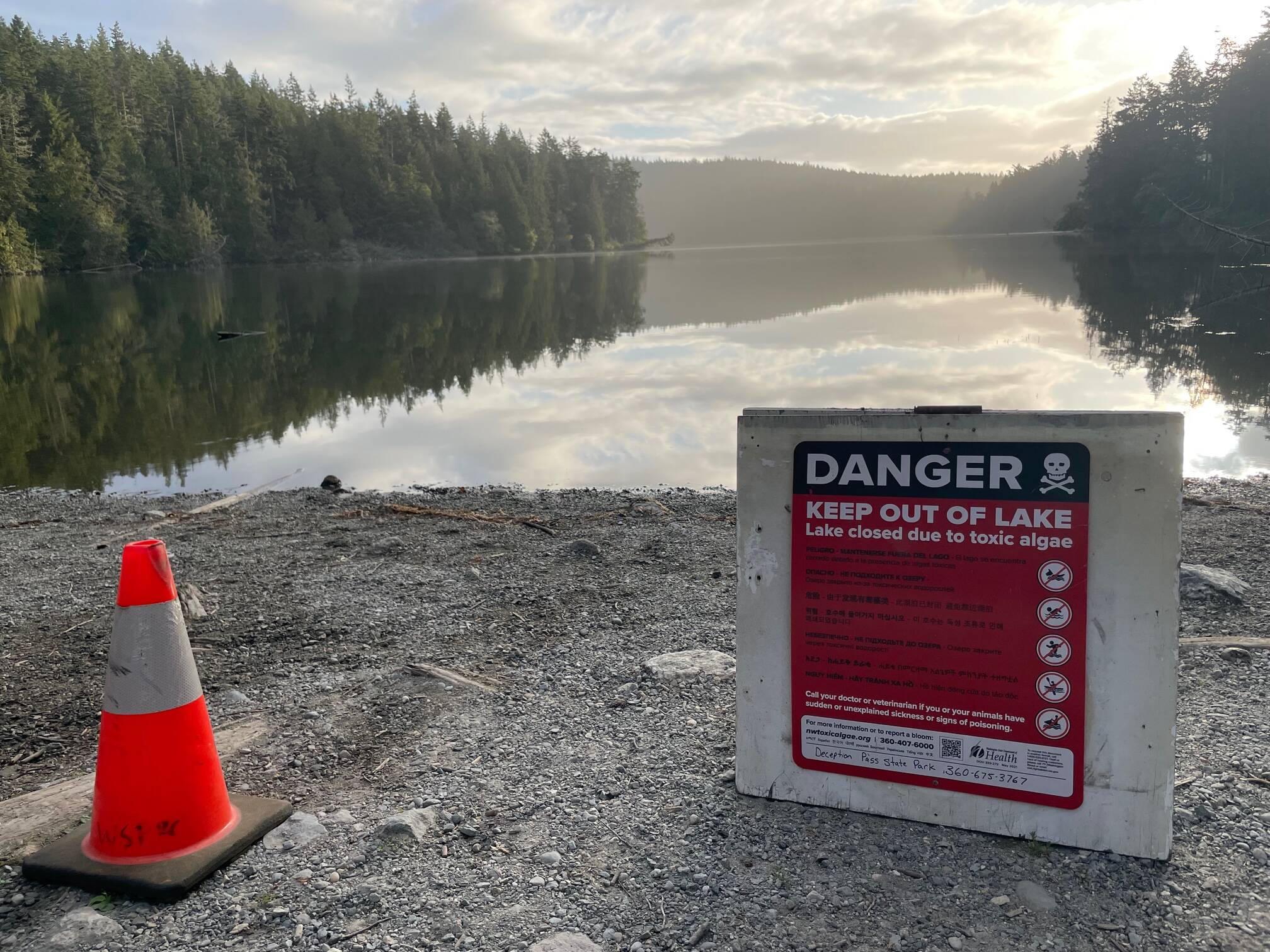Algae blooms strike again, claiming Pass Lake and Lone Lake.
Pass Lake, just north of Deception Pass Bridge, has been closed to recreational use since Aug. 9 due to the high toxin levels caused by algae blooms and will remain closed until the toxic levels are below the recreational guidelines.
The Washington State Toxic Algae’s website shows that the latest test results from Aug. 7 indicate levels of microcystin — or algal toxins — exceeding state guidelines.
The lake was last tested Aug. 7, and more tests will be conducted the third week of each month until the toxic levels are below the recreational guidelines, according to an alert from Washington State Parks.
Tests conducted on Lone Lake on South Whidbey on July 25 also showed excessive levels of microcystin, and it’s not safe for recreation.
According to the Environmental Protection Agency, algal toxins are a substance caused by algal blooms, which may occur due to high temperatures and high nutrient levels. When cyanobacteria — a type of algae — degrades following an algae bloom, it tends to release algal toxins.
People exposed to algal toxins may experience skin rashes, eye irritation or respiratory symptoms. Though rare, some people might also experience gastroenteritis, liver or kidney failure, or even death.




